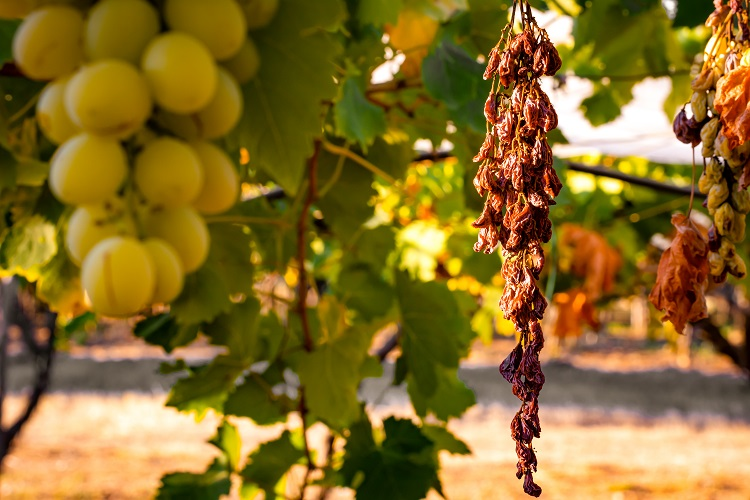Climate change

Grape wine flavour and composition varies
depending between different vineyards, areas, or regions. With the rising
global temperature, it has become a concern with the impending effect on grapes
that it would have.
As climate change accelerates, vine phenology
and grape composition are increasingly affected, with implications for
vinification, wine microbiology & chemistry, and sensory aspects. It is
important to note that climate change-related effects include earlier harvest
times and higher temperatures, increased grape sugar concentrations, which
contribute to high wine alcohol levels, lower acidities, and modified aroma
compounds from varietals.
Some regions are currently experiencing
extremely hot temperatures, which may inhibit vine metabolism and reduce
metabolite accumulations, which could affect wine color and aroma. The presence
of excessive sugar induces a stress response in yeast, increasing the
production of fermentation co-products such as acetic acid. Unless acid is
added to control the pH, the higher pH will result in significant changes in
the microbial ecology of musts and wines, which increases the risk of spoilage
and organoleptic degradation.
How
will Climate Change affect the production of grapes?
With lack of water or high temperature, it
will change the way wine will be processed. If there is extreme drought and
heat conditions, then the grapes will be affected by the soil and the weather
condition. Grapes can tolerate moderate water scarcity, hence in Southern
Europe, it is grown in dry and unproductive soil. But even though, the quality
of grapes will deteriorate. Bad climate conditions will cause stress on the
plants which will stun the growth of the grapes.
What
changes can we expect in grapes due to adverse climate conditions?
●
High
concentration of sugar content:
Grapes are fermented to turn sugar into
alcohol. The high temperature will change the process of fermentation which will
lead to higher sugar content which will in turn heighten the alcohol content.
●
Loss of
colour intensity:
The high temperature will affect the
pigmentation of the red wine; hence it will result in a lighter shade of red
wines.
●
Less acidic
wines:
The acidity level in the wine adds flavour
to the wine which helps to preserve it. Higher temperatures will reduce the
malic acid present in the wine and increase the potassium.
●
Modify the
taste of wine:
The flavour of the wine will also change due to the high temperature. The temperature plays a huge role in the synthesis of
aromatic taste in the grape which will result in altering the taste of the
wine.
During the growing process of wine, low
water levels or high temperatures can pose challenges. Soil plays a crucial
role in determining plants' ability to cope with drought and heat. In order to
make high-quality wine, moderate water stress is beneficial. However, Grapes
suffer from stress due to environmental factors, which will ultimately affect
the wine they produce.
